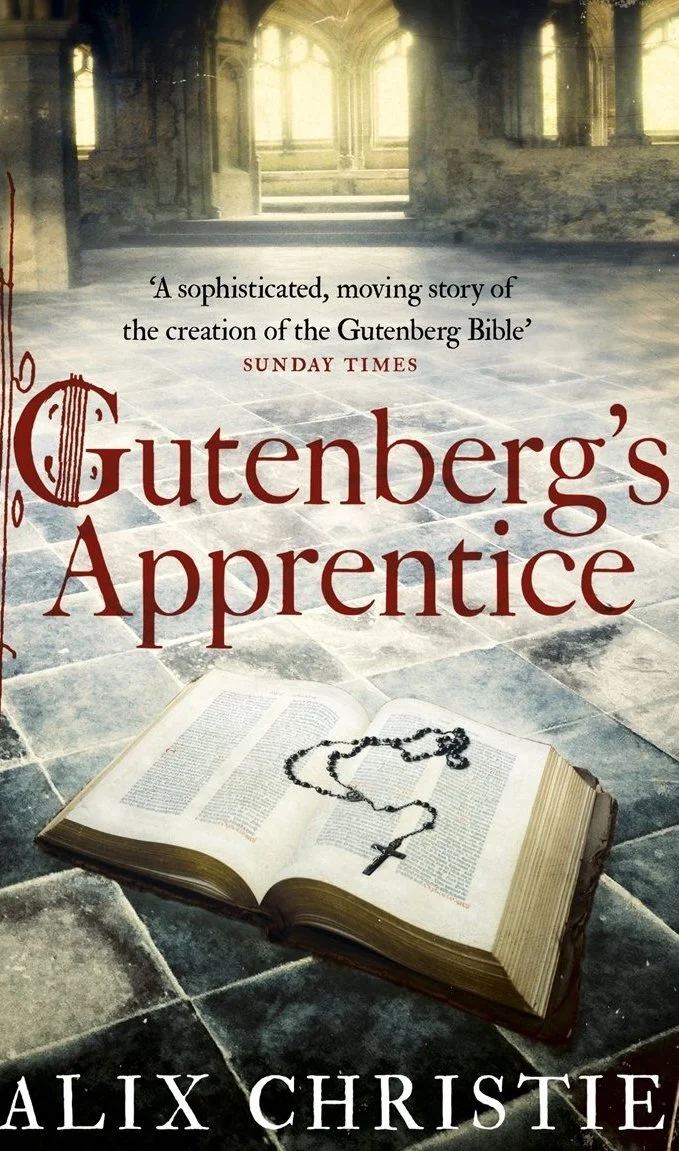Alix Christie’s "GUTENBERG’S APPRENTICE"
Book review by Dennis D. McDonald
Several times I was fortunate to participate in the Frankfurt Book Fair as a vendor. My most lasting impression was of the sheer cacophony of that massive event.
I was reminded of those days by the Frankfurt scenes that take place towards the end of this book. Gutenberg and his staff have made the overland trek from Mainz to Frankfurt where they finally reveal to the world at the annual Trade Fair Gutenberg’s two-volume mechanically printed Bible.
The public sale of the mechanically printed Bible and its positive reception were outcomes of many years of experimentation, hard work, political intrigue, religious subversion, even imprisonment.
At the end the day it was all about selling books in order to repay investors and to get out of the crushing debt imposed by years of research and development.
The author of this article novel luxuriates in historical and technical facts as she presents Gutenberg as the inscrutable, vain, imperious, and debt-ridden master salesman that he really was.
Or so she says. I don’t really know. Despite this being a novel, though, the history-rich story told here does have the ring of truth to it. We learn the details of how moveable type and the printing press were developed in secret at a time when industrial espionage was rife and the selling of indulgences by the Church was a common fundraising technique.
All of this “art and technology” mix is presented in the context of a time in Europe when politics and religion were joined at the hip, commerce was cutthroat, and trade guilds enforced an economy where competition was strictly limited.
The author succeeds, admirably I think, in illustrating how much of an innovation the printing press really was in the face of the harsh religious and political environment of the day.
How Gutenberg wends his way through the financial, political, and religious forces arrayed against him is told from the perspective of a young scribe, the son of Gutenberg’s main investor. Young Peter Fust rises in importance as the story progresses and eventually becomes Gutenberg’s right-hand man. It’s a perfect viewpoint for storytelling as it all allows us to follow the story from the inside so we can witness how the printing and publishing technology we now take for granted got started.
An underlying theme is also how the innovator perseveres against naysayers as a dream is pursued against great financial and personal odds. Gutenberg is portrayed as anything but a saint. He lies, cheats, steps on people, and he constantly robs Peter to pay Paul.
His perseverance pays off even as human damages are left in his wake. It all sounds very contemporary, and that’s probably the author’s point. But there’s no way around the importance of the story!
Review copyright © 2016 by Dennis D. McDonald


